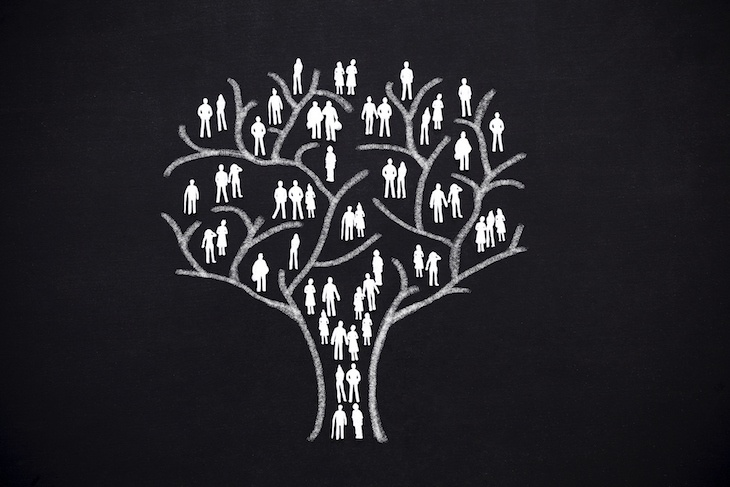This book reminded me of Kurt Andersen’s Fantasyland — but where Andersen thinks only Americans have lost their minds, David Andress thinks everyone has. I can’t say I disagree, being a subscriber to the Hourly Outrage, also known as Twitter.
Andress refers to Brexit, Donald Trump’s election and Marine Le Pen’s rise in French politics as things that should have been ‘punchlines’, comparing those who voted for them to dementia sufferers. And that’s just in the first couple of pages. So I’m guessing that as a Leave voter, I’m not the intended audience — nor do I, as someone with a PhD in history, fit into Andress’s analysis of uninformed and delusional Brexit voters. Nonetheless, he’s right that things have been shaken up.
He offers a neat sweep of postwar history, and is right about the broader sense in which postwar prosperity — particularly that experienced by the middle classes of Western nations — was itself an aberration. Considering it the norm has been a major problem in politics and economics for the past 20 years. But admitting that lifetime employment and a generous welfare state were perhaps an economic blip and not a reasonable expectation is a tough pill for many to swallow.
One element Andress omits in this analysis is the changing role of women. The increased participation of women (particularly middle-class women) in the workforce since the 1970s actually helped our economy weather the shocks of the oil crisis and deindustrialisation. That the women’s movement essentially bought us another generation of prosperity is part of the equation, although it came at a cost (two incomes are now required to afford a middle-class lifestyle in much of the country).
Moreover, Andress’s broad overview could also apply to many post-industrial Western nations. In singling out the US, France and the UK, he is forced to make awkward comparisons. Yes, France and Britain have much in common, particularly in their colonial pasts and problems of immigration from their former territories. Andress is a historian of France, and he understands its political landscape. He explains why Le Pen has had as much success and visibility as she has, and how Macron will need to be extremely nimble to maintain his position.
But when it comes to the US and Trump he is on shakier ground. To be sure, he wheels out the standard analysis that has emerged (after the initial scrambling of the pundits) of embittered blue-collar white voters. Of course that’s part of the story, but not the whole one. The footnotes show Andress leaning heavily on the Guardian and the Huffington Post as sources. If he had drawn on magazines such as Commentary, the National Review, the American Conservative and The Spectator he would have had a more nuanced perspective. (Readers genuinely interested in Trump’s mass appeal would do well to read Joan C. Williams’s White Working Class.)
Andress links our current political situation to ignorance of history on the part of voters. He is right about the general cluelessness regarding history, and the often shoddy way in which it is taught in schools. The writing of textbooks and creation of curricula are always political. But what I increasingly note when I talk to people about history — when I tell someone I’m a historian I hear a great deal about their relationship to the past — is the use of the first person plural. I come across this most of all in the US, where people, including academics, proudly say things like: ‘We fought for independence from the British.’ Such phrases come from Americans of many ethnic backgrounds, most of whom have no biological kinship to those who fought in the American revolution. But they feel a spiritual kinship, a proprietary connection to their nation’s past.
This is what the French used to try to inculcate, with generations of children of varied ethnic ancestry talking of ‘nos ancêtres, les Gaulois’. In the UK, I only hear ‘we’ connected with the past in senses that Andress would probably consider jingoistic (‘we won the second world war’; ‘we had the greatest empire in the world’). And most definitely by the kind of people who voted Leave. It’s not something I hear academics saying. They stick to the distancing technique of talking of ‘the British’ as though they were some alien group, which is telling. I grew up among people who spoke of the past in terms of ‘we’ and ‘us’. It was only at university that I got raised eyebrows and dirty looks for talking about how ‘we’ had colonised India, or invented railways.
Andress wants to understand our current political situation, and this book is to be recommended as a handy primer — particularly on France’s postwar political travails. It’s a handsome volume, with a ribbon marker. But perhaps don’t buy it for a Brexiteer.















